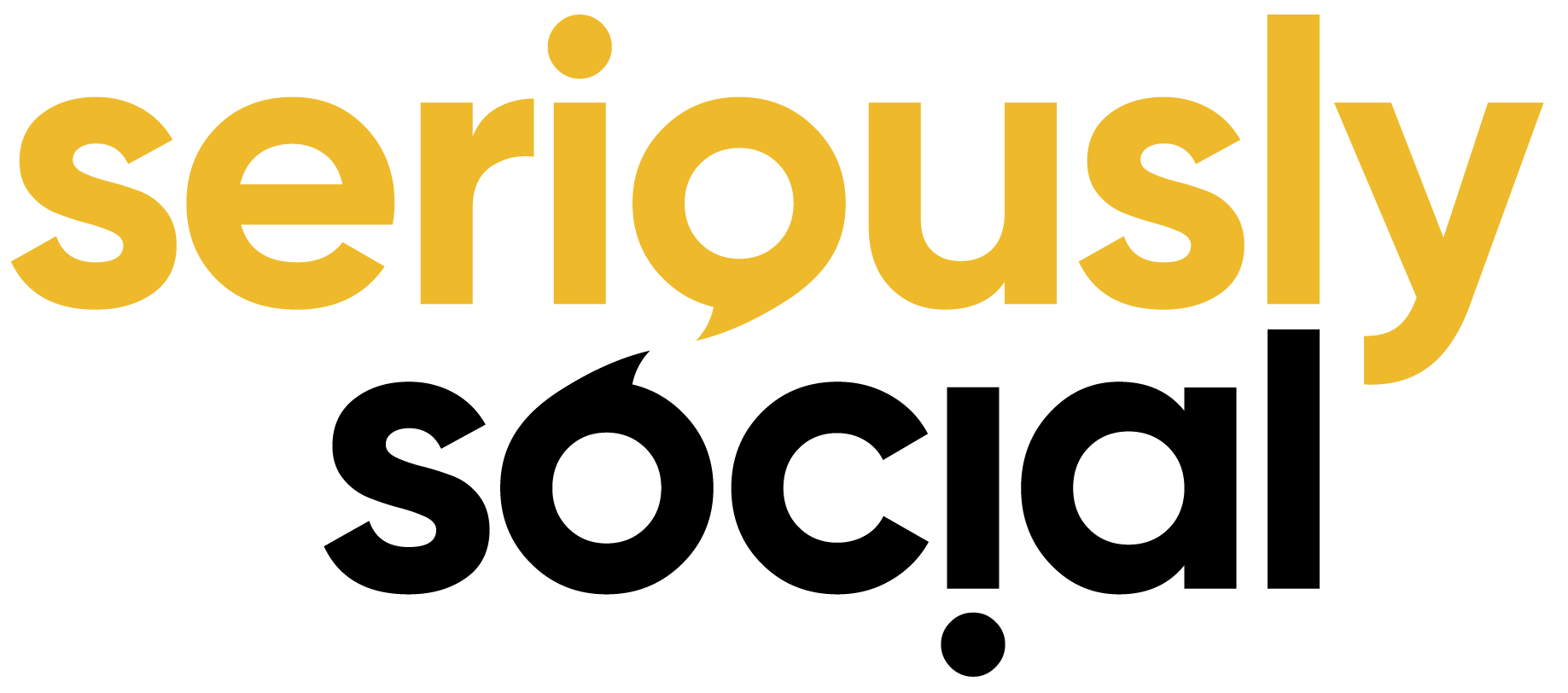Episode Notes
The TV show, Neighbours, premiered in 1985. Since then, you’re likely to know half as many neighbours as you did in the mid-1980s. So, how did your community help you get through 2020? And why is something Professor Andrew Leigh terms “an ugly term for a beautiful concept” (social capital) so important?
[Start of recorded material]
Rachel: [00:08] Oh, my God. How good’s a cuppa?
Ginger Gorman: I’m so tired at the moment.
Rachel: I got up at 4:30 this morning with some stupid bird at my window.
Ginger: I’m sitting at the kitchen table with my dear friend and neighbour, Rachel. She’s lived on this street, on our street for nearly 20 years.
Rachel: …on the weekend. And my mum was blown away. She was like, “Oh, my God,” because there were kids everywhere.
Ginger: But your Ruby, I do remember when I first moved into this house that you would say to me, “Oh, I never know where she is. I just have to look out the front door and scream.”
Rachel: Oh, yes. A hundred percent because back then, all of the houses had young kids and they were all the same age. And, you know, your neighbours would go out into the street and say, “Who’s got Hugh?” or I’d go, “Who’s got Ruby?” and you get somebody holler across the road, “I’ve got Ruby.”
Ginger: I’m so aware of just how lucky I am to live on a street that is really connected. In the 21st Century [01:00], it’s increasingly unlikely that you would even know the names of all your neighbours, let alone stop and chat to them when you see them outside on the street.
Professor Andrew Leigh: The TV show, Neighbours, premiered in 1985, and since then, Australians have come to know half as many neighbours as we did in the mid-1980s.
Ginger: That’s economist-cum-politician, Dr. Andrew Leigh. He’s the Labor Member for Fenner and he’s also a Fellow of the Academy of the Social Sciences in Australia. And among Andrew’s many obsessions is community.
Professor Andrew: I love community. I love that notion that you can spend time on a street getting to know your neighbours. You can have kids who tumble down the street to play with friends down the end. A life lived with friends is a better life.
Ginger: His latest book, Reconnected, which is written with advisor, Nick Terrell, examines the way that people are connecting with their communities and this is despite the many modern forces that seem to be keeping [02:00] us all apart.
Rachel: I just think because we’re all so busy and almost to some degree, we’re more connected now more than ever, but we’re also more disconnected now more than ever. So, when you’ve got a street like this, and you’ve got neighbours like this and people that you can talk to and say hi to, and actually ask for help at times, you know. I know I’ve asked for help.
Ginger: And your family helps me all the time. Like last year, when I was traveling all the time and I’d get off a plane, jetlagged and there would be this beautiful, hot roast lamb offered to me and the kids. It was really amazing.
Rachel: Can we not forget about the quiche that you left at my front door that day after I had done like a 16-hour day in I don’t know, 373 days of Christmas straight or something stupid.
Ginger: Well, what comes around, goes around, I reckon.
Rachel: That’s right. And also, can we not forget the gin and tonics? Let’s not forget happy hour.
Ginger: This is Seriously Social. I’m Ginger Gorman and on the pod today, I’ll help you reconnect with your community [03:00].
[Children playing.]
Ginger: Try again, Olive.
So, what happened? As a nation, when did we stop getting to know our neighbours and others in our community? Here’s Dr. Andrew Leigh again.
Professor Andrew: We’re two-thirds less likely to attend church, two-thirds less likely to be part of a union and we’re less likely to join associations and there are fewer associations to join. So, all of these trends are going in the wrong direction. We’ve become more of a nation of ‘me’ and less of a nation of ‘we’.
Ginger: But why is that actually a [04:00] problem, if I don’t want to join a union or I don’t want to join a sporting team or I’m happy jogging by myself, I don’t want to go play cricket with other people?
Professor Andrew: When people are surveyed about how they feel about the decline in community, they say they’re worried. They say they would like to live in a more connected community, but it’s also true that social capital has other spinoffs.
According to one study, not having any friends can be as bad for your health as smoking 15 cigarettes a day. Economies that have less trust tend to work less effectively because people have to write everything down if they’re scared of being ripped off by their business partners.
And again, social capital is just one of the simple pleasures in life that improves wellbeing. As an economist, I don’t care about maximising money. I care about maximising wellbeing. Connected societies tend to be happier societies.
Ginger: You used a word there, ‘social capital’. So, what did you mean by that?
Professor Andrew: Social capital is an ugly term for a beautiful concept. It’s the idea that just as physical capital, bridges and roads, have a value, just as human [05:00] capital, the skills and education that people have has a value, so too the connections between us have inherent value.
Ginger: There was a line early on in your book that I loved and you were talking about friends and how they actually can make you live longer.
Professor Andrew: Absolutely. And Nick Terrell and I go through some of this evidence. Some of it’s purely observational, but increasingly, randomised trials are coming to the fore. People are looking at ways of modifying people’s social networks and discovering that when you do that, people tend to be happier.
One of my favourite studies asked people to spend $5 over the course of a day. One group is asked to spend it on themselves, another group is asked to spend it on others. And at the end of the day that are randomly selected to spend the money on others are happier than those who spent it on themselves.
Ginger: One way that people do build community is by volunteering.
Professor Andrew: Volunteering is an important part of so many organisations. A whole lot of community organisations in Australia, [06:00] whether it’s the Red Cross, the Salvation Army, whether it’s local mutual aid groups that sprang up around the coronavirus pandemic, rely on people voluntarily giving their time.
And yet, volunteering rates have fallen off since the start of the century and that’s been a real problem for many organisations. But yet, there are organisations that have looked to buck the trend.
Former Socceroo, Craig Foster, set up Play for Lives, an organisation that asks sports people to sub in and help out for organisations that have lost volunteers often because older volunteers had to step back. And Craig doesn’t just want to make a difference this year. He wants to have a lasting impact, recalibrating the relationship between professional sports people and their communities, which he feels has become too distant in recent years.
Ginger: Of course, it’s one thing for high-profile, highly-paid professional sportspeople to factor community service into their routine, but most of us have loads of balls to juggle, getting kids to school, feeding [07:00] a family and who could forget, work?
Professor Andrew: There’s been a big increase in paid work across the community since the 1960s when social capital was much higher than it is today. A large portion of that is the great and welcome development of women moving into the paid workforce.
In an era in which gender pay gaps were much larger and gender discrimination was much worse, women ran many of the Australian community associations that have tended to wane. We don’t want to go back to the more sexist, racist period of the 1960s, so the challenge now is how we manage to build community in an era in which we’ve got greater gender equality.
Astrid Jorgensen: Choir is traditionally a pretty nerdy and wholesome activity, and yet all of these people are lining up around the block to come and spend a festive night with me.
Ginger: Astrid Jorgensen is a Brisbane muso, who founded [08:00] Pub Choir.
Astrid: After telling this crowd of thousands exactly what I need them to do in order for this project to work, I stand back and we do our first run through of the song I’ve just been teaching them and 3,000 strangers erupt with song in literal harmony. It’s like strangers working in literal harmony. It’s not just lip service, like it’s a nice feeling. They are working together in true vocal harmony and it actually sounds amazing. They’re a proper fully-fledged choir at the end of the show.
Ginger: So, Astrid found this way to connect people when they were at their most isolated and frankly, most afraid about what [09:00] COVID might mean for them.
Astrid: We were in America in March, actually, at the beginning of this, which was not a good place to be, so it turned out. But we were on our way to South by Southwest Festival in Austin Texas and we had an American tour and we had to cancel the whole thing overnight and lose all our flights and accommodation and a lot of money, actually and just hotfoot it back to Australia to an empty calendar and no prospects of having an income.
The realisation was that people are still the same. We still have our singing voices with us, we just can’t use them together in the room. And so, Couch Choir is pretty much the exact same idea as in teaching everyday people to sing together, but we just had to do it virtually and just find a solution for that.
The feeling of community at a Pub Choir show, which is the live experience is just palpable because people don’t often, I think, get the opportunity to collaborate with strangers for a shared goal [10:00] in such a tangible way. Like there’s goodwill and hope for all, but then at Pub Choir, you have to actually collaborate and you all have to want each other to succeed and you all get to share in the benefits. And it is like this utopian moment of humanity where we are actually a community of singers and musicians and people together, each contributing an equal amount.
When we do something like Couch Choir, which is the virtual manifestation of that in COVID times, people have to trust that the community still exists around them because you submit your video by yourself in isolation at your home and we edit the videos together back into the choir virtually.
And I think the feeling of watching that video is still the same as being in the room. It’s harder to believe it will happen, but when you actually still see the video of human beings all around the world connecting together, you realise that community is not just a [11:00] physical thing, but it’s like a state of mind.
Ginger: Yeah, so I watched the Couch Choir version and I found myself just absolutely bawling at my desk, it was so moving.
Astrid: Even if people feel like they didn’t really nail it, they’re not amazing singers, when we add everyone together, the law of averages prevail. Some people sing so beautifully. Some people create a new version for themselves and when you add it all together, it gives us this real richness of the human experience. And Couch Choir is still a real choir of human people working together, even if they’ve done it in isolation from one another.
Ginger: The question I’ve got is will the community spirit that so many of us [12:00] have seen in 2020 from sharing toilet paper in community library boxes to standing on balconies and singing or applauding essential workers, will that actually carry over beyond the pandemic?
Andrew: The challenge, and one that Nick and I highlight for this is whether this is a lasting shift or just a temporary blip. World War II was a lasting shift in community connections. It produced the greatest generation, who went on to do much more civically active for decades. September 11 in the United States was a temporary blip. A big upsurge in the sense of solidarity and trust evaporated within a couple of years.
Ginger: And the Depression seemed to have a lasting impact on that generation, didn’t it, as well because they were still thrifty. They were still sharing meals and things like that. There was a much more localised feeling the way that experts have described in previous episodes. But [13:00] that also lasted quite a long time.
Professor Andrew: Absolutely. And disasters tend to bring people together. We see this in bushfire affected communities that there’s a sense of everyone contributing. When I was in primary school, we lived in Waterfall in the South of Sydney and my dad was in the volunteer firefighting brigade.
And he made an interesting comment to me once. He said, “Andrew, the community, when there hadn’t been a fire for a while, would start to bicker over the most trivial little things. And it was almost as though only when fires came did all those petty disputes disappear.”
This is the 1970s, where the blokes got on the truck, the woman made and brought the scones down to the fire station and suddenly the community felt much more united. It’s not exactly the way you want to build community, but it does have that effect.
Ginger: In terms of your idea of volunteering, I’m wondering about something Professor David Hensher said to me because he’s a transport expert. He was talking about the hours we are saving from not commuting in big cities. I’m wondering if you, your [14:00] book, or the brainiacs can turn that time that we now have into more community activism and volunteering?
Professor Andrew: I certainly hope so and it goes to your question before about people being time pressed. Even if you doing working from home a couple of days a week then that frees up a whole lot more time. Traditionally, we talk about this as freeing up time to look after kids, but it’s also time to practise a hobby, time to hang out with friends, time to look after all the relatives. All of those opportunities emerge when people are doing a little bit less commuting.
And commuting isn’t just time lost. It can also be an activity that eats into our sense of optimism and faith in our fellow human beings. Sitting in a car in traffic, being cut off is not a good thing for your view of your fellow human beings, particularly as solo car commuting is the way in which more people get around than any other.
Ginger: So, one of the solutions that Andrew and Nick talk about in the book is this notion of combining community [15:00] service with something more self‑serving and they call this ‘double-plus-good’ activities.
Professor Andrew: We see it in 100 Intrepid Landcare groups, which do river clean-ups in which people can get fit and also look after their environment. Singles tree-planting events in which you can be guaranteed you will improve the environment and you have the chance of meeting the love your life.
They deliberately move people around between plantings and so you get to meet everybody else who’s there and, of course, you’ve got a likeminded group of environmental people.
Ginger: I love the idea that you’d be planting a tree with someone and you might fall in love because they’ve already decided to plant trees, so their heart’s in the right place, isn’t it?
Professor Andrew: Exactly. Planting the seed for a future relationship.
Ginger: If you go back to your economics background and your politics background, like zoom out for me, how do all these activities you’ve described create the bigger picture of the [16:00] connected community?
Professor Andrew: It’s fundamentally about being a society of communitarian ‘we’, rather than individualistic ‘I’. A society, which is both more equal and also more civically connected.
Nick Terrell and I describe a world in which work is flexible by design in which people are able to blend family responsibilities, spending time with friends, hobbies with their work where work isn’t all consuming.
We talk about neighbourhoods in which people know their neighbours and can draw on them in times of need, whether that’s to have a teenager mowing your lawns, someone picking up your mail while you’re away on holidays.
We talk about the value of community organisations stepping in when someone’s in crisis. And we all know examples in our own lives in which friends have been there for us when we’ve been doing it tough. I remember one guy who told me, “I don’t think I’d still be around [17:00] if my cricket club hadn’t helped me when I had a battle with depression.”
Ginger: Wow.
Professor Andrew: He didn’t join his cricket club for mental health assistance. He joined them as a sporting activity, but they were the network that he drew on for resilience.
Ginger: What about leadership in all of this? Where do people like yourselves, politicians and other types of leaders, like business leaders, medial leaders and so forth, where do they all feed into this?
Professor Andrew: The leadership that Nick Terrell and I most admire in Reconnected is the leadership of community organisers, people like Juliette Wright, who found GIVEIT, has now organised more than two million in-kind donations. People like Matt Napier, who’s bounced an AFL ball all the way across Australia in order to raise money and awareness of overseas aid.
But you’re right. There’s also a role for business and political leaders as well in moving away from that discredited Margaret Thatcher idea that there’s no such thing as society and the discredited Milton Friedman notion that a business only exists to provide shareholder [18:00] value.
We need to realise that politicians have to celebrate community and encourage people to work together rather than encourage atavistic individuals. And that the businesses are there not only for their shareholders, but also for their workers, for their consumers and for societies at large.
Ginger: Thanks for listening to Seriously Social. I’m Ginger Gorman.
Next time on the pod, how do pictures impact policy and also influence the way that we think?
If you like the podcast, do spread the word, share a link on your social channels, review us and tell your friends. See you next time.
[End of recorded material 18:45]
Useful Links
- Reconnected: A community builder’s handbook Andrew Leigh & Nick Terrell
- Play For Lives
- Pub Choir
- Intrepid Landcare




